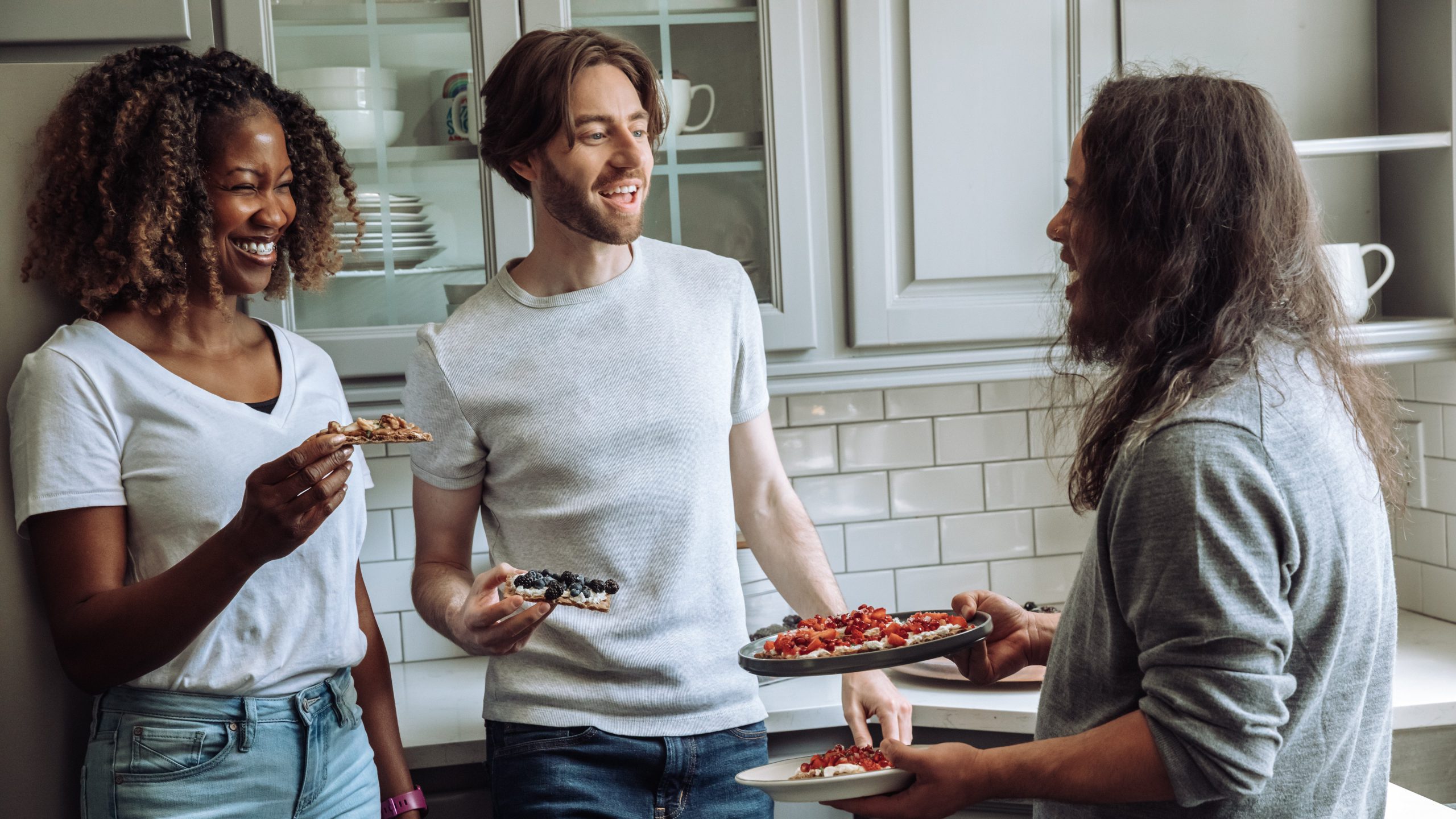Cooking is, for most people, a near-daily necessity. But instead of treating it as one more chore, you can broaden your cooking horizons and discover a truly rewarding experience. The first step is to be more intentional about cooking—if you’re going to be preparing your own meals, you might as well acquire the skills and knowledge to make dishes that excite you.
Beyond the gratification of eating tasty meals, learning how to make your own food (and how to enjoy doing it) will benefit you physically, emotionally, and financially. Studies have shown that people who cook more often maintain healthier diets overall. Restaurant dishes and take-out foods are typically higher in sodium and saturated fats. Plus, when you’re preparing your own meals, it’s much easier to control your portion size.
Intentional cooking can also be a mindful activity that causes you to feel more aware, engaged, and reflective. Psychologists believe mindfulness is one of the best ways to combat anxiety and depression. The stress relief you feel from preparing your own food will only grow when you realize that, on average, cooking at home is five times cheaper than ordering delivery from a restaurant. And cooking doesn’t have to be a solo activity—when you do it with family and friends you’ll benefit from some dedicated bonding time and a sense of teamwork.
With all of that in mind, check out these tips for becoming a skilled home cook, and start your new rewarding hobby today!

1. Get equipped
For most meals, you won’t need anything too fancy. But investing in some quality items is a good idea. In this case, it’s better to own a few essentials at a higher price point than to buy a wide array of kitchenware or a big cooking set. Having an abundance of cooking utensils is nice, but the truth is you probably won’t use most of the specialized tools that frequently. Plus, items that come in beginner sets are often less durable. Instead, you can gradually seek out the following pieces (it doesn’t matter if they don’t match or if they come from different brands):
- Sizeable, heavy-duty stock pot
- Small saucepan
- Sturdy baking sheet
- Non-stick pan/skillet
- Larger chef’s knife and smaller paring knife
- Solid cutting board
- Spatula (silicon-coated or wooden)
- Colander
- Potholders
2. Be inspired by seasonal produce
No matter what time of year it is, there’s something special being harvested. Get acquainted with your local farmers’s market, or even just the produce aisle at a decent grocery store. You’ll be surprised at how Mother Nature helps you plan your meals and change your palette throughout the year.
3. Make a routine and stick with it
Transitioning from ordering delivery most nights to cooking at home can be difficult. Start small by committing to cooking once or twice a week on specific days. Having a set schedule will make it easier to avoid slipping off track.
As you gain experience, you’ll even start to look forward to your home-cooked meals as an opportunity to take your mind off things, eat healthy, and feel proud of yourself for creating something delicious.
4. Find a cookbook that fits your style
The idea of following a cookbook can be off-putting for some people because they imagine a stuffy, textbook-like experience that makes cooking feel more like homework. But these days, there are cookbooks for every variety of homecook, whether you’re interested in award-winning vegan recipes or making food from your favorite movies and shows.
5. Savor the experience
When cooking feels only like a means to an end, you’re more likely to get bored, frustrated, or even lose your motivation to cook at home. So make it fun by listening to music while you cook, inviting others to join you, or even just donning a special apron. As the meal slowly comes together, focus on the aromas, the sizzling ingredients, the changing colors and textures. Simply put: be present while you cook.
6. Remember you don’t have to go solo on this cooking journey
For beginner home cooks, entering the wide world of cooking can be daunting. It may seem like there are too many skills you don’t know, too few recipes that make sense for you, even too many cooking words you don’t recognize!
That’s why it pays off tremendously to learn from other cooks, as people have been doing throughout history. Try connecting with Meetup groups like Cooking Adventures for casual home cooks or Chez Francois French Cooking Classes for more of a studious approach. There are also groups like International Food Quest whose explorations of local cuisine can inspire you later in the kitchen.
If you can’t find a cooking group in your area, or you want to form a community that specializes in a unique aspect of cooking, you can easily create your own Meetup group and invite others to treat their taste buds with you.
Last modified on January 3, 2023










